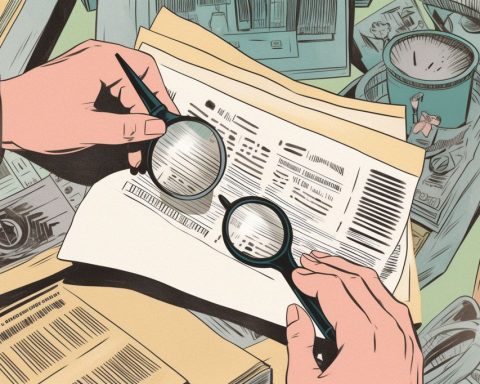The National Student Financial Aid Scheme (NSFAS) is crucial in funding higher education for eligible students at public universities and colleges in South Africa. While the scheme has faced criticism for non-disbursement of funds, NSFAS is committed to resolving all issues by mid-January. However, there is growing public concern about the scheme’s inadequacies and calls for reform to ensure transparency, eliminate corruption, and swift disbursement of funds. Despite challenges, NSFAS’s role in dismantling financial barriers and empowering future leaders is essential to creating a more equitable society.
The Crucial Role of the National Student Financial Aid Scheme (NSFAS) in South Africa’s Higher Education Ecosystem
Cape Town’s academic sphere is home to a critical issue affecting many South Africans – educational financing. The National Student Financial Aid Scheme (NSFAS) plays a vital role in funding tertiary education and has recently faced criticism for non-disbursement of funds and financial exclusions.
The NSFAS’s Mission
The NSFAS aims to provide a lifeline to eligible students at public universities and TVET colleges, empowering those from lower-income families to pursue higher education. However, the scheme faced significant obstacles in 2023, including IT glitches and leadership issues. Despite this, NSFAS is committed to resolving all fund disbursement issues by mid-January.
A Comparison to Educational Support Systems in Europe and Cyprus
When compared to Europe and Cyprus, NSFAS’s role in combating South Africa’s higher education funding issues is in sharp contrast. The European Union’s Erasmus+ program promotes intercontinental educational unity, and Cyprus benefits from this initiative as part of the EU.
Public Sentiment and Concerns
Social media platforms reflect growing disillusionment among South Africa’s youth regarding NSFAS’s inadequacies and the ANC. Calls for protest and reform are becoming more prominent, with many expressing concern about NSFAS potentially derailing the dreams of black children. Some are also urging those who can finance education without aid not to fleece the government.
NSFAS’s Efforts to Streamline Funding Processes
NSFAS has taken steps to streamline its funding processes, including rolling out bursary applications for the 2023 academic year. These applications offer a financial lifeline to South African citizens who receive SASSA grants or hail from households with an annual income below R350,000.
The Importance of Transparency and Swift Disbursement
To preserve the sustainability and effectiveness of NSFAS, the people demand transparency, the elimination of corruption, and swift disbursement of funds. NSFAS’s stabilization and resolution of student funding issues will contribute towards building a more robust educational structure that uplifts today’s learners and empowers future leaders.
The NSFAS serves as a driving force in South Africa’s higher education ecosystem, despite facing significant challenges. Its critical role in dismantling financial hurdles for eligible students is essential to creating a more equitable society. NSFAS’s continued efforts to streamline its funding processes and address concerns will contribute to a more sustainable and effective higher education ecosystem.
What is the mission of NSFAS?
The mission of NSFAS is to provide financial aid to eligible students at public universities and TVET colleges, empowering those from lower-income families to pursue higher education.
How does NSFAS compare to educational support systems in Europe and Cyprus?
NSFAS’s role in combating South Africa’s higher education funding issues is in sharp contrast to Europe’s Erasmus+ program, which promotes intercontinental educational unity. Cyprus benefits from this initiative as part of the EU.
What are the public sentiments and concerns regarding NSFAS?
There is growing disillusionment among South Africa’s youth regarding NSFAS’s inadequacies and the ANC. Calls for protest and reform are becoming more prominent, with many expressing concern about NSFAS potentially derailing the dreams of black children.
What steps is NSFAS taking to streamline its funding processes?
NSFAS has taken steps to streamline its funding processes, including rolling out bursary applications for the 2023 academic year. These applications offer a financial lifeline to South African citizens who receive SASSA grants or hail from households with an annual income below R350,000.
Why is transparency and swift disbursement important for NSFAS?
To preserve the sustainability and effectiveness of NSFAS, the people demand transparency, the elimination of corruption, and swift disbursement of funds. NSFAS’s stabilization and resolution of student funding issues will contribute towards building a more robust educational structure that uplifts today’s learners and empowers future leaders.











